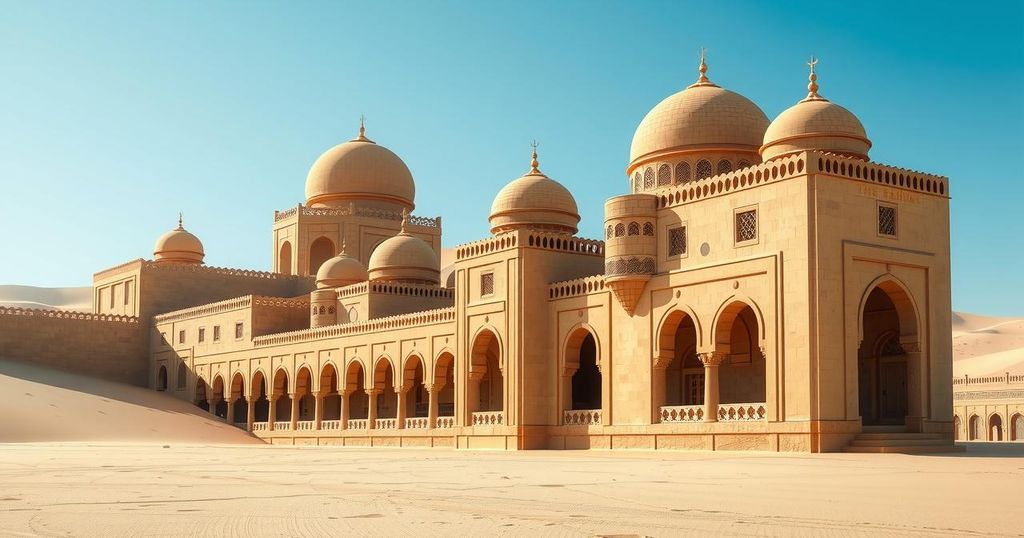The recent diplomatic meeting in Doha between Rwandan President Paul Kagame and Congolese President Félix Tshisekedi focused on regional peace while highlighting significant security concerns. Rwanda emphasized that any peace process must address these concerns, particularly the FDLR threat, and called for direct dialogue with the M23 rebel group. Despite differences in accounts of the meeting’s outcomes, Kagame expressed cautious optimism for future negotiations and underscored Rwanda’s security priorities.
In a significant diplomatic meeting held in Doha, President Paul Kagame of Rwanda reiterated the nation’s commitment to regional peace while firmly asserting that Rwanda’s national security is paramount. The discussions, hosted by Sheikh Tamim bin Hamad Al Thani, aimed to alleviate the tensions between Rwanda and the Democratic Republic of the Congo (DRC), led by President Félix Tshisekedi.
While a joint statement hailed Qatar’s mediation as constructive, both nations issued independent statements illustrating divergent narratives. Rwanda’s statement from Village Urugwiro reaffirmed its commitment to dialogue, emphasizing that any peace process must address the persistent security concerns in the region.
Rwanda’s portrayal of the meeting was measured, avoiding exaggerated claims of resolution. Unlike the DRC’s assertion of an “immediate and unconditional ceasefire,” Rwanda remained focused on the necessity of continuous diplomatic discussions while asserting that it would not accept solutions lacking a serious examination of the root causes of instability in eastern DRC.
A pivotal outcome from the meeting was the affirmation of the EAC-SADC process as the primary mechanism for conflict resolution. Rwanda has historically insisted that regional initiatives are necessary over external pressures, with Kagame underscoring the need for peace negotiations to align with these frameworks.
Kigali has also emphasized addressing the FDLR threat, a genocidal force active in eastern DRC. Rwanda consistently demands decisive actions from both the international community and the Congolese government against the FDLR, arguing that neglecting this issue hinders genuine peace efforts.
Moreover, Rwanda highlighted the necessity of security assurances not only for itself but for the broader Great Lakes region. According to Kigali, sustainable peace is infeasible without prioritizing regional security, a stance that contrasts with the DRC’s focus on ceasefire agreements alone.
The discussions yielded an urgent call for direct political engagement with the AFC/M23 rebel movement. Rwanda and various regional stakeholders pressed Kinshasa to involve M23 in negotiations, recognizing that excluding key parties prolongs the conflict.
Despite persistent challenges, Kagame expressed cautious optimism regarding peaceful prospects, underscoring the importance of commitment to dialogue by all stakeholders. He remarked that “With all parties working together, things can move forward faster,” reinforcing the belief that regional cooperation is vital.
The neutral stance of Qatar during these discussions was notable, as they positioned the meeting within broader efforts to maintain peace in the Great Lakes region while refraining from mention of specific agreements. This incident reflects a recurrent pattern in diplomatic endeavors, where conflicting accounts often lead to mistrust.
Rwanda’s overarching priority remains security. Kagame’s definitive message indicated that Rwanda will not endorse resolutions that do not address its legitimate security concerns, reinforcing the need for accountability regarding armed groups in the region.
Rwanda’s foreign policy emphasizes stability and sovereignty rather than capitulating to external pressures. The complexities of the situation in eastern DRC, involving numerous regional and international actors, underline that effective diplomacy requires a genuine will to address fundamental governance and security issues within the DRC rather than shifting blame externally.
The Doha meeting between Rwanda and the DRC signaled both ongoing commitments to dialogue and persistent mistrust, particularly regarding security concerns. While Qatar’s mediation efforts present potential for progress, Rwanda insists that meaningful peace necessitates addressing foundational issues, such as the threat of the FDLR and the inclusivity of negotiations involving all parties, including the M23. Ultimately, lasting stability is contingent upon the DRC’s willingness to confront its internal challenges, alongside regional cooperation.
Original Source: www.ktpress.rw




